The Ministry of Defence has confirmed that the Future Air Superiority Effectors programme (FASE) is currently in its pre-concept phase and that work is under way to establish a concept phase.
In a written parliamentary answer on 24 September 2025, Minister of State Luke Pollard set out the department’s position, saying “The Future Air Superiority Effectors programme is currently in pre-concept phase, and work is actively underway to establish a concept phase.” The reply was made in response to a question from Ben Obese-Jecty MP.
FASE is intended to deliver next-generation air-to-air and related effectors designed to engage a broad range of targets and operate from multiple platforms, including future crewed and uncrewed aircraft, according to publicly available programme descriptions.
The MOD statement did not provide further technical detail, procurement timelines or budgetary figures.
Pre-concept activity typically covers early analysis, threat definition, option development and initial requirements setting ahead of a formally scoped concept phase and any subsequent procurement competition. The department’s answer indicates that those preparatory steps are in progress but stopped short of announcing milestones or dates for transition to later phases.
No additional information was supplied in the parliamentary answer about suppliers, test plans or integration with wider air-domain programmes. As with many defence development efforts at this stage, further public detail is likely to be limited until the concept phase concludes and decisions on acquisition routes are taken.



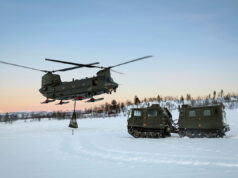

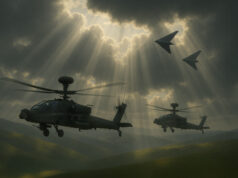
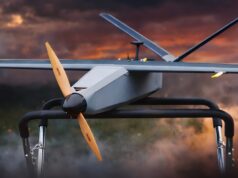

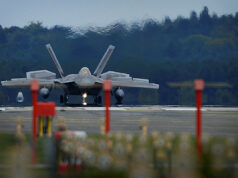
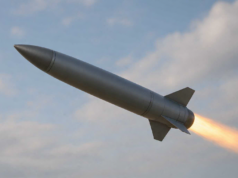


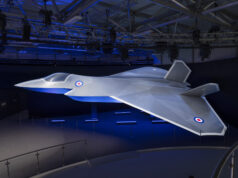

One for Tempest (amongst others) I presume but, inevitably, not likely to be seen on a preparatory system like the F-35.
The biggest danger here, I would think, is that it might take 50 years to come to fruition. By which time the F35 will be history.
Based on the emerging threats, expect to see this sooner rather than later.
Based on past and current spending plans don’t expect to see it at all.
Point taken however we are in an unprecedented position. At best we are moving back towards a cold war at worst we might be at war pretty soon. Suddenly the country might wake up to the situation and chuck out any Government who is not doing it’s utmost to modernise and rearm.
I think the Cold War is already upon us. The chances fo an all out war is, I think, remote. What would be acheived by China or Russia in starting one. China has everything going her way and Russia is bankrupt but van’t win. Is China really going to bale out Russia? I doubt it. As for a British government coming up with the goods I’ve been waiting for twenty years and nothing so far. Starmer hasn’t got the will to do anything and even if he had the party wouldn’t let him.
Assume this will replace ASRAAM and/or Meteor in the dim and distant future. Will it get on the F35 before it (F35)is withdrawn from service, only slightly tongue in cheek, UK weapons integration on F35 has hardly been quick.
As our primary air defence platform is Typhoon and will probably be so towards 2040, potentially beyond then that is the aircraft most in need of this especially due to its lack of stealthiness. By late 30s hopefully Tempest will become the focus. Fact is while Meteor has characteristics that arguably make it the best all-around Air to Air missile around it is even now well out ranged by Chinese and some less sophisticated Russian missiles. Equally the Chinese ones are considerably faster. Clearly this means as good as it is, Meteor is going to be potentially struggling in the next decade certainly against the Chinese or those operating its missiles. So it either needs to be upgraded or replaced within the next decade and that’s being optimistic perhaps on timeline if we ever have to face the Chinese who I would fancy being up against even now.
I hope that an accurate assessment of the risk can be obtained from the Indians and/or the French based on the events of the recent Indo-Pakistan conflict. We’re Meteors employed by Indian Rafales, were targets attained and were any engaged. The story behind that will shed much light on how urgent the situation is. It’s possible, some say likely the Indians thought they were outside of Pakistani missile range and may have been complacent that first night, and/or they didn’t utilise Early Warning Aircraft effectively, unlike the Pakistanis but answers do need to be had so that the threat can be properly assessed.
I suspect that the Meteor is already a very good basis for any new missile, so would expect the design to form the basis of any new missile, further range extension being the main factor but assessments of what it’s up against will dictate what else in terms of manoeuvrability, electronics, guidance and sensors and overall performance.
The replacement for Meteor will sit between the ASRAAM replacement and STRATUS RS’ air to air mode in terms of range, so unless MBDA think they can hugely improve performance from the same footprint as Meteor the improvements will have to either be in pK through either ECCM or manoeuvrability, or in compactness of the propulsion system so that Tempest can carry as many as possible internally while retaining capability.
When Meteor was concepted, one of the key requirements was that it had to match the footprint of the existing AMRAAM. This was so that it could fit in the underbody cut-outs on the Typhoon. As the F35’s design was being frozen, AMRAAM being the primary A2A weapon, meant Meteor had to also match it to make sure it could fit in the weapons bays.
If you compare the dimensions of the Chinese PL15 with AMRAAM/Meteor, you’ll notice that PL15 is longer (4m vs 3.65m) and also wider in diameter (203mm vs 178mm). The additional volume is used to contain more propellent. According to reports it uses a twin pulse solid rocket motor. Meaning it uses a boost, glide, re-accelerate flight profile. The PL15E export version is slightly smaller, with slightly less performance than the Chinese only version. What information can be gleaned from the recent India vs Pakistan spat, is that the PL15E has an approximate range close to 200km (124 miles). Which some say similar to Meteor, so in theory the full fat PL15 should have a longer range.
In practice, there won’t be a lot between them. Some publications say that the PL15 accelerates to Mach 5 after launch, which is great. It is a fairly aerodynamic design. But the crucial factor is the cruise/glide phase, when the missile is slowing down due to drag, as its unpowered. The question would be over say a 100 mile engagement by how much does it slow down? Does it drop to Mach 3 or lower? Meteor, when launched will accelerate to around Mach 4.5 perhaps a bit more. If its been used against a long range target at a similar 100 mile range, it will throttle back. But to what speed, Mach 3 has been mentioned a lot, but it could be more. These deceleration curves and cruise curves can be plotted on a graph. To see which missile reaches the re-acceleration threshold the quickest, i.e. where the second stage of the PL15 is ignited or the Meteor throttles up again.
However, if Meteor was made to the same dimensions as the PL15, so that it contain more fuel. It will have a distinct advantage over the twin pulse rocket powered PL15. As it would mean that with more fuel available. It can either extend the range further, whilst staying at the same Mach 3ish powered cruise speed. Or there’s no need to throttle back, and it maintains a much higher cruise speed over say the 100 mile distance. By using more fuel to maintain a higher cruise speed, the missile will close the distance much faster than the PL15. Thereby giving the larger Meteor and launch aircraft a distinct advantage.
The problem with the larger Meteor is it will now be too big to fit in the F35’s weapons bays, so will have to go under the wing. It would be the same for Typhoon, it would be too big for the underbody cut-outs. Unless the aircraft was modified to accommodate the larger missile.
Other options for the current Meteor, would be to add am additional 1st stage rocket booster. Either by adding the stage after the missile body, to make it longer, which is not great for the F35 fitment. Or strapping additional rocket boosted to the main body of the missile, that then fall away once they’ve used up their fuel. Thereby accelerating the missile to Mach 5 or more at launch, which delays the need to throttle back as quickly for the cruise stage. You could also look at opening up the two small air intakes, as their cross sectional area probably inhibits speeds above Mach 5.
What has become evident that the JF17s that launched the PL15Es, then handed control over to the Saab 2000’s. That then used the Erieye radar and data-link to steer the missiles towards the targets. Which I believe is the first time this process has been used in combat. The problem for aircraft facing this, is that the radar illuminating you doesn’t change the way its operating. To an aircraft’s radar warning receiver (RWR) it will look like a search radar scanning the skies, not one that is tracking you. I wonder if we will ever find out how both the Indian and Pakistani AEW platforms performed. As India now has the IL-76s with the Israeli EL/W-2090 AESA radar along with the Netra-1s and the older IL-76 Candids from Russia. Does the Indian AEW platforms have the capability for data-linking to beyond visual range missiles?
The DoD is looking at JetZero’s blended wing design aircraft as a possible solution to the issue of survivability of tankers in an air-war. Although the aircraft isn’t designed as a stealth design, its blended wing design significantly reduces its radar signature. Additionally the mounting of its engines on top at the rear of the aircraft contributes to a reduced radar and infrared signature,
Could weapons be mounted, not under the wings, but potentially on the upper surface of an aircraft to allow external carriage without compromising stealth as much? 🤔
Yes you can mount weapons on top of the wing. The Jaguar did/dies this, mounting Sidewinder and Magics and now in Indian service they mount ASRAAM.
However, by doing so, you significantly reduce the life of the weapon. This is due to the much harsher conditions on top of the wing compared to below it. For example due to Bernoulli’s theory, the speed of the air over a curved surface increases. But also on an aircraft wing, especially a swept one, the air twists as goes over the leading edge. This twisting air joins with other streams, but it isn’t uniform and travels down the wing towards the tip (if it’s a rear swept wing). So you get pressure differences. As these hit something like a missile attached to a launcher. The pressure differences cause the missile to oscillate, This can be fairly benign, whilst other times can be pretty violent.
On most within visual range missiles (WVRAAMs). The missile is attached to a rail by a set of hangers. The oscillations cause the rail and hanger to wear. Some launchers use a spring tensioner to automatically adjust for movement, some do not. Over time the oscillations will wear the hanger and launch rail out of limits. Needing them to be replaced.
But perhaps worse is the oscillations causing internal damage to electrical components and connections. The weapon and aircraft talk to each other continuously, giving health updates etc. It may get to a point when the pilot needs the weapon, but due to the oscillations breaking something, it’s no longer available.
For something like the Jetzero blended wing aircraft. It is probably wiser to incorporate an internal weapons bay. As the aircraft design is subsonic, it makes incorporating weapons bays much easier.
And EE Lightnings did.
It seems the ammunition bay is a major constraint over system evolution. Something to think deeply about.
The speed of the meteor seems to be an issue. It may be to slow compared to other missile.
The range of engagement is now so long that… it make no sense. A fighter taking off in Pakistani air Space is for half of it in the waze of Indian Météor. With the new systems from China or the Cirus missiles, all the Pakistani air space is in range. If a plane flew from France at the border with Germany, we could help protect 2/3 of their air Space. With these kind of range, the reflexion over interceptions of such weapons is inevitable.
I know GCAP in particular is looking at maximising the size of the weapons bay/s. I’m pretty sure SCAF will do the same. Though I believe due to the carrier requirement it will need to be a smaller airframe than GCAP.
I have a feeling there’s going to be a new class of Western beyond visual range missiles (BVRAAMs), i.e. a Meteor size class that becomes the medium range weapon. But now includes a bigger type, that can go even further. Where they meet or exceed the expected range of the Chinese only PL15 and perhaps the rumoured range of the PL21.
The problem is that if you go too big, the weapons bay will have to be massive. As you’ll want to hold a few of them or have a mix of the larger and “standard” size BVRAAMs. By making the weapons bay huge then leads to other airframe compromises. Such as placement of the engine’s air intake and its trunking.
With Meteor you could make it go quite a bit faster, by enlarging the air intakes that feed the “ramjet”, i.e. more air plus fuel equals more thrust (to a point, as the nozzle will also need looking at) However, by doing so you will reduce the range. So there’s a balancing act between range vs speed.
The range question does put in to context how important airborne early warning aircraft are. As demonstrated by Pakistani Erieye equipped Saab 2000s. That allegedly shot down the Rafale from about 200km (145 miles). Where the Rafale didn’t respond to the radar threat coming from the Erieye radar, being used to guide the PL15s.
It will be interesting to see how this plays out, especially as MBDA have announced that the Stratus-RS (RJ1-10) has a secondary air to air role.
Yep it’s part of a general “western equipment is far better than Chinese equipment “ paradigm that’s a bit dangerous to be honest as the India airforce found out when it lost modern western combat aircraft to one one the longest air to air shots made in history by a Chinese made PL-15.
The west needs to start getting away from the “ Chinese equipment is poor copies of old soviet stuff “ mentality and start treating them with respect.
“Pre Concept phase”
Maybe we’ll come back in ten years after all the meetings and discussions have come up with an actual concept ?
The Bloke who did Funderbirds was churning out new concepts daily.
(I slipped one in for thun)
Working in government must truly be the cushiest job of all time. Imagine the fate of us humble mortals if we took ten years to produce a tangible return for our employers
As an Employer, I would have sacked the lot of them.
Aah but would you have replaced them with halfwits?🤪
If you employ halfwits you have to have twice as many, but you can pay each of them a quarter of the usual wages!
Ahh but my lot were Monkeys and I paid peanuts.
Works if you have a peanut farm, which the MoD must do as they give peanuts as the budget for every single project!
Yes but Labour hate Farmers.
Would I heck, They’d be after my job !
Levi, fair point. In early 2016 I was working for Rheinmetall on the Challenger 2 Life Extension Project (now called CR3!). It will be fully in service in 2030. That’s 14 years for just for a platform upgrade, not even a totally brand new platform.
I suspect this won’t be a clean sheet missile but if it is I dread to think what the timescale will be. Even a much upgraded Meteor will no doubt have various delays when one considers how Spear 3, Brimstone 3 and even the ‘simple’ Martlet did despite greatly exploiting much pre existing or merely updated technology.
Actually it isn’t cushy at all. In fact it is bloody frustrating. We’d answer a bunch of questions from the grown ups, who would then ponder the answers and then move on to their next postings handing the decision over to their replacement. Their replacement would pause the program because there had been insufficient handover time allowed and the newbie did not want to make a decision on an expensive program that they didn’t have a clue about.
Once they had spent a few months reading and asking questions they would come up with a bright idea and ask for studies to be carried out into their bright idea. You see bright ideas get noticed back at which ever unit the grown up had been posted from so in order to further their career they would push the new bright idea, sponsor another round of pre-concept studies to justify their salary get the answer back, move on and drop the new idea into the next grown up’s lap… The number of times we found ourselves answering the same bloody questions… It became a sick joke…
Cushie NO. Frustrating YES! We wanted to get things done, we were techies seeing stuff work that, as a techie, you played a small party in is a source of great satisfaction. Everything else is a let down, sadly, one we often had to get used to as the grown ups over spent the budget with their foolish question, answer, repeat cycle…
Please don’t blame the foot soldiers.
CR
We need a method in this country for new companies to bring their ideas to the fold. We need systems to kill small cheap slow drones today. Basically we should not be spending any more on anti drone systems than the target drone costs to produce in the first place (preferably less).
We should also be combining the work of different Small to Medium size businesses (SMEs) working simulatiously on different aspects of this solution.
Laser guided rockets like the US uses is one option. Not dirt cheap but still a lot cheaper than missiles costing more than a million a pop. Even as a stop gap until something takes their place. It would be far too sensible for the MOD to consider a ready made option though, not the done thing.
I always thought the best answer to an incoming enemy drone swarm would be a drone swarm of our own.
Just send up a flock of dozens of our own drones, each packed with explosives, to get close to the enemy drones and detonate – ideally blowing up several enemy ones at once.
True but your drone flock will have to be within a few miles of the attacking drones for the most part, not an easy thing to organise or maintain when you don’t know when or where the attack might take place. You will get some but not sure how effective it would be over time and those operating the drones would hardly be immune from being taken out. I think a relatively fast and long endurance mother drone that can release a number of of mini drones to actually do the final intercept would be a decent bet.
My thought was more to protect assets like ships, or fixed land sites e.g. airfields, naval bases etc. The drones could easily be deployed to such sites and sit there ready for a potential incoming drone swarm.
But I like your idea a lot better now you mention it.
A modern version of a hurricane or spitfire would be able to take out slow drones with a cannon. Subsonic jets would be another option again using something as simple as cannon fire would allow coverage of a wider area.
The problem with using an aircraft of any kind is that it’s far more expensive.
How much would a single “modern Spitfire” sortie to intercept incoming enemy drones cost – fuel, ammunition and post-sortie maintenance etc? Plus the training and salary costs for the pilots.
Now imagine a flight of 3-4 of them to deal with a drone swarm. It’s cheaper than launching Typhoons but still too expensive.
Ground-based SHORAD gun weapons are much cheaper, and swarms of our own defensive drones to take off and intercept enemy drones would be cheaper and more reliable long-term.
It’s not just the cost of threat weapons that you should consider when thinking about the cost effectiveness of defensive weapons, it is part of the calculation, but so too is the value of the asset being targeted. If it is a strategically important asset like an aircraft carrier or a critical bridge, anything that could seriously impact your ability to continue to fight effectively and you are going to throw anything and everything at the threat weapon system, swarm of cheap drones or expensive cruise missiles…
There will be occasions when taking down a drone swarm with expensive missiles seems like a poor exchange, for example a block of flats, but the politicians will have to consider the effect of morale of not doing anything. When Churchill asked the commander of London’s AA guns whey they were not firing at the night time blitz, he was told it was because they couldn’t target the aircraft so it was a wast of ammunition. Churchill understood the impact on morale of appearing to ‘hit back’ so he ordered the guns to keep shooting.
Cost vs value in war time is complicated and political. In peacetime, we should indeed be looking to develop cheaper counters to these drone swarms as treasure is real factor in calculating your ability to fight on, hence Directed Energy Weapons, but it isn’t the only considerations. Losing an aircraft carrier would be a serious blow to any nations self confidence today, just as the loss of HMS Hood came a shock to the British in WW2. Churchill knew that the score had to evened out so ordered the RN to sink the Bismark at any cost. Even clapped out old Revenge class battleships were taken of convey covering missions to hunt the Bismark – fortunately they weren’t the ones who found her!
Cheers CR
With all due respect to George and the team and their hard work reporting on defence issues, I am sick to the back teeth of reading about “pre-concept, “concept, “studies” and “evaluations” of technology and weapon systems. When, I ask, will HMG and the MOD actually buy something that will improve our defence situation? Can they (you know who “they” are) not understand the gravity of the situation?
It’s the same bad habit of saying ‘by 2030,’ but wait, by then it will be 2035/40; some things never change.
The thing is Ian. All of the mentioned activities you listed have been ongoing for decades and the results are the equipment and capabilities you see in service today. The big difference is, you didn’t hear about these concept studies and evaluations back then because it wasn’t such open source news released to the general public to comment on. And the days before social media and defence news sites like UKDJ.
Agreed Robert, but it is the world we live in and still galls me.
Agreed Robert, but it is the world we live in.
I agree there were loads of project that were canned, amalgamated etc.
It is rather the nature of cutting edge research that it goes beyond the possible and then sits ‘cooking’ for a while until technology catches up with it.
You could say the same for the SAMPSON SEA VIPER setup that was a load of projects that couldn’t be made to work on computers of then but works perfectly on the computers of now.
Anyone who has looked through military forums like SPF, Shipbucket etc would realise that there were hundreds and hundreds of what would now be called pre-concept studies for Dreadnoughts, WW2 fighters and into the Cold War, ever since centralised design offices have been a thing.
I just grew up with (and have been aware of) this way before the Internet was even a thing and way before any sites like this, we had an amazing amount of Imagination and design Ideas. Then the country went backwards at a shocking pace and now we seem to be playing catchup.
Spot on…
Although, it has often been that way. During the Pax Britannica era the RN preferred not to rock the boat and rely the UK’s industrial might of catch up and overtake anyone who had the temerity to try and out do them. They were not best pleased when ‘Jacky’ Fisher became First Sea Lord and rushed HMS Dreadnought through the process. He realised that other nations, Germany and the US most notably, had similar concepts cooking and he felt we couldn’t sit a wait for them to steel a lead…
Hopefully, we will be able to catch up and maybe come up with something that will give us an edge. We have track record, after all!
Cheers CR
Couldn’t agree more. The headline here should be, ‘Such and such admits that no work done yet on new solution for this problem’.
In a wider rant, programs are not products and I’m sick of programs being given fancy names and discussed for a decade as if they are contributing a capability when they haven’t even been selected or manfacture been established. Tempest, missile ships, whatever. In many cases drawing a picture is the only work that’s been done.
If you need pictures of future tech for your page, I’ll get my nephew to imagine things and draw a few crayon pictures and they’ll be every bit as informed and be every bit as impressive to our foes.
👍
I agree especially when the article says what they are saying only for it to immediately be repeated in quotes. Never quite understood the need for that peculiarity of presentation. Double repetitive.
And what’s happening in the UK GBAD department?! Other than some more SkySabre for Army any other news? Nice putting missiles on ships and talking about future ships, sloops etc, but what about right now to next 5 years? Some SAMP/T land based Aster that could be shared with the RN could be a start, Denmark just purchased last week (or so) and France and Italy have. Other more en masse systems needed too. Even a UK NASAM to utilise current missile stocks. They’ve got to ge watching what our allies are doing and hopefully doing something? Ports, bases, infrastructure, people, all should have some basic and readily delployable protection at least. Increasing “lethality” is also be in the defensive department.
IMO, SAMP/T isn’t going to do much that the Sky Sabre can’t already do. Anything ballistic on its way from Russia will be beyond the capability of the Block 1NT to do much about.
If you want to be better defended against cruise missiles, get more Sky Sabres, integrate newer missiles and position them around airfields, naval bases, et cetera.
Sky Sabre’s radar is the current limitation.
The Sky Sabre style batteries are fine for local/small area defence of bases etc.
There also needs to be something with a lower cost per shot than Sky Sabre linked into the system – my preference is for 40mm to deal with drones and leakers. The sort of massed assault of drones mixed with similar dummy drones….
Really there needs to be a radar of radars approach. That way taking out a few radar heads wouldn’t make too much difference.
Is that the sort of system the Poles are aiming for? Layered, flexible but very interconnected.
If you have a drone swarm coming in I think maybe something like a flare dump but with explosives would be the most effective. Then what survives get’s taken out individually by gatling guns/40mm type weapons.
I think having some more serious GBAD to defend with any surprise or initialll attack and even ABM is doable with Aster and even more do with its later variants. Missiile stocks/systems maintenance/ personnel can be shared with the RN. Same with CAMM and MR whenever that happens. A good level of interoperability between forces is just as important with our allies.
*sorry for the typos.
The thing is, SAMP/T NG is very expensive. Like, half a billion for a battery kind of expensive. So it becomes a luxury compared to simply getting more Sky Sabre, which is far cheaper.
There’s also the issue of interceptor production, which is very low for the Aster.
May be we should buy larger batches in partnership with allies. Look at how the cost of T26 came down even with just the RN ordering a second batch. Europe still has too many different systems even though MBDA is the dominate producer…
Cheers CR
Yeah, and I’d be much more supportive of a SAMP/T procurement if the price tag was to decrease. However, until that happens, I think there are better ways to protect against more realistic Russian threats.
I think people forget that there’s not much Russia has with regards to ballistics that could both hit the UK from mainland Russia and also be easily intercepted by the SAMP/T here.
So, you’d be spending nearly half a billion on a capability that couldn’t do much about the existing ballistic threat. If you really want to provide a credible BMD, THAAD, Aegis Ashore or a theoretical FADS ashore that I’ve seen floated on other forums are all better options than the current SAMP/T NG.
I think in the near term, the MoD should focus on procuring more Sky Sabre systems. Enough to cover Faslane, Portsmouth, Coningsby, Lossiemouth, et cetera. In the medium term, build up a stockpile of CAMM-ER and CAMM-MR and look at developing a new radar system.
In the long term, look at joining the Aquila programme.
Just wait till Drones start hanging about over Brize, or Lossi.
I think it is only a matter of time.
The RAF Regiment has a small CAUS capability, but, no idea how effective it is, and I doubt it can “cover” more than a handful of sites.
Still…..more tea, biscuits, meetings, studies, concepts, and plans for MoD to announce and Putin is a patient man.
That is the thing you can launch drones out of a container on a ship or a truck or whatever you like really.
The sort of cheapo polystyrene stuff they are using will be hard to track as that part of it is radar transparent.
Which leads my mind to an AA gun system issued to a Regiment sized unit, centrally located, that can disperse to multiple locations on warning, and we do rely on our intelligence apparatus for such warnings.
As to me HMG will baulk, and find endless excuses, to fund a wider comprehensive solution that has defences In place in multiple locations waiting for something that might not come.
Ideally, I’d have a CUAS capability at every major UK airport, and much of our key node defence sites, but I’m trying to be realistic.
The MOD Police operate this way, they cover plenty of places, but cannot be everywhere, so have tactical units that can deploy where needed, geographically placed north, central, south, to deploy as needed.
The way the MOD police etc operate is fine for peace time but it is not a viable high threat operational mode.
The whole though process needs to change to accept that we are sliding into a state of grey war where Russia & Co are laughingly testing us out on a daily basis.
Interesting to get more info from the recent Danish (and I believe and instance in Norway too) drone incidents. If they were Russian instigated they sure weren’t flown in from Russia so local agents, from vehicles, or ships at sea, I think we need to understand the threat if not simply local idiots playing a game. But then even that could be a threat realistically if left uncountered.
It does seem when comparing the map to the time of the incidents, that a ship was more than likely involved in part of the drone incursion. But the drone incursion to the central part of the country may have been from inside the country. The Danes have only given a very vague description of the drones, i.e. were they quadcopter style or fixed wing?
Concept: Shoot down an enemy plane at n miles. Done, moving on!
Keep up the good work!
Built for, but not with, any political will to complete the program.
Wow another named project, there so many with so little to show for any of them. If armed forces were judged on how may projects they are looking into Britain would be a world leader. Sadly we do seem struggle when comes buying any thing from this mass of projects. We like to talk about kit, have meetings, invite industry then nothing much else.
MOD has become an empty talking shop with nothing to show for it but words and targets,
I think we need a new Ministry of Silly Names to deal with the rush. These things have to be organised don’t ya know.
I agree as long we can have some meetings about and get some out side advice in to see if we are on the right path, of course we will need pay for out side help. However any cost will be worth it to get the name and group format right yet still produce nothing.
HMG are really good. at Concepts and no result at the End 🤔 🙄😟
Seriously? Our LAST world beating missile isn’t even integrated onto F35 yet.
Just the very notion of this new weapon is enough to send Lockheed Martin engineers into a four-week period paid sick leave.